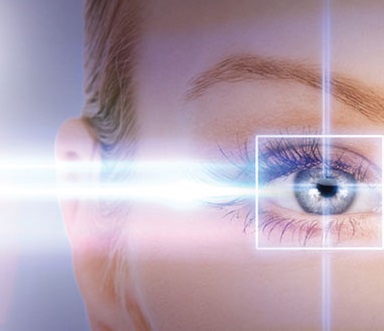LASIK is a refractive eye surgery that corrects vision problems and eliminates the need for glasses and contact lenses. This surgery has gained popularity in the recent years as it is a simple procedure that involves minimal risk.
[the_ad id=”6287″]
However, there are several myths associated with this operation which has created confusion in the minds of the general public. Below are some of the common myths associated with LASIK Procedure listed along with the actual facts.
Myth: LASIK surgery is painful.
Fact: Lasik Surgery for both eyes takes about 15 minutes. During this time, eye-numbing drops are used to ensure a pain-free experience for the patient. There might be some pressure during the creation of corneal flap; however, the laser reshaping is completely painless. After the surgery is completed, some patients complain of discomfort or a gritty sensation in the eyes for a few hours. In such cases, patients can request their respective doctors to give them mild sedatives before the beginning of the procedure to keep anxiety at bay.
Myth: LASIK can cause blindness.
Fact: Not a single case of blindness due to LASIK has been reported. Like any other surgery, even LASIK has its own set of risks. It is up to the doctor’s discretion to ascertain whether the candidate is eligible for LASIK surgery or not. Since LASIK only affects the front surface of the eye, serious complications are rare.
Myth: Long term side effects of LASIK surgery are unknown.
Fact: The earliest LASIK surgery was done in the 1980s in the United States. Since then, millions of LASIK surgeries have been performed across the globe without any serious long-term effects. Any complications arising from this surgery typically occur immediately after the procedure and can be quickly resolved.
Myth: A successful LASIK surgery means you will never need glasses again in your life.
Fact: While LASIK surgery eliminates the need for glasses or contact lenses in the present, it does not prevent future ageing of eyes. Therefore, even though LASIK surgery has been performed on a patient, at some point after the age of 40, the patient may need reading glasses. LASIK surgery can sometimes reduce night time vision and some patients may need to wear glasses at night while driving or performing other tasks. It is important to maintain good eye health by frequently visiting the doctor for regular checkups.
Myth: Laser corrects only nearsightedness, not farsightedness or astigmatism.
Fact: LASIK corrects all kinds of refractive problems including nearsightedness, farsightedness, and astigmatism. Patients suffering from all these defects can opt for LASIK surgery provided they are deemed eligible by their doctors.
Myth: All LASIK outcomes are similar, so any doctor can perform the surgery.
Fact: Your eyes are one of the most precious organs of the human body. It is of utmost importance to put them in safe hands by choosing a qualified ophthalmologist to perform this surgery. Most complications arise out of lack of pre and post operative care thus increasing the need for experienced doctor. The success rate of any surgery depends largely on the skill and experience of the surgeon and patients are advised to do their homework and select the best possible option for themselves.

